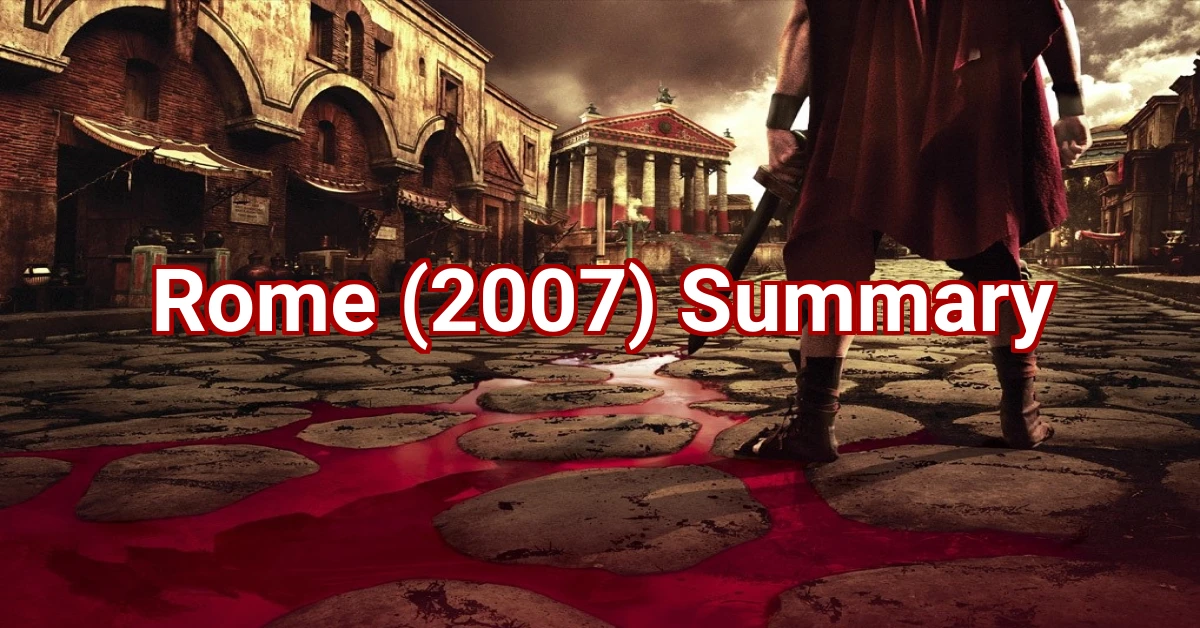Welcome to this Rome – 2007 movie summary, where history springs to life in a gripping tale of power, betrayal and the clash of ambitions. Directed by Jonathan Marcus and released in 2007, this historical epic blends sweeping visuals with intimate character drama. Set during the tumultuous final years of the Roman Republic, the film explores themes of loyalty, destiny and the price of empire. Whether you’re a history buff or simply love a grand story, this movie promises an unforgettable journey to the heart of ancient Rome.
Overview of movie
Rome unfolds as a sweeping historical drama, running just under two and a half hours. Its cast includes stellar performances by Marcus Bello as the ambitious general Lucius Valerius and Helena Grau as the cunning Senator’s daughter, Aelia. The screenplay, co-written by Sophia Romano, emphasizes both intimate personal struggles and the broader political machinations that shaped the republic’s destiny. Cinematographer Rafael Ortega captures the grandeur of marble forums and dusty battlefields alike, immersing viewers in every moment.
On release, critics praised the film’s commitment to authenticity, from the Latin dialogue snippets to the meticulously reconstructed costumes. Meanwhile, audiences lauded its human stories—stories that resonate even today. As a result, Rome achieved both box office success and a devoted following. It remains a benchmark for combining historical epic with compelling drama.
Rome – 2007 movie summary
Act I – The Setup
The film opens amid the roar of battle on the outskirts of Carthage, where General Lucius Valerius secures a decisive victory. However, rather than triumph, he returns to Rome to face political intrigue. The Senate, divided between traditionalists and reformers, views Valerius’s popularity as a threat. His old friend, Tribune Cassius, now serves those traditionalists and warns Lucius to temper his ambitions.
Meanwhile, Aelia, daughter of the powerful Senator Octavianus, observes these power plays from the marble corridors of the Curia. Educated and fiercely intelligent, she spies for her father while secretly wondering whether Rome’s old values still hold meaning. As Lucius and Aelia cross paths at a Senate banquet, a spark of mutual respect—and perhaps more—begins to form. This meeting sets both characters on a collision course with fate.
Act II – Conflict and Turning Point
Conflict ignites when Tribune Cassius orchestrates a public debate, challenging Lucius on alleged war crimes during his Carthaginian campaign. The streets erupt in protests as citizens rally behind both sides. Lucius responds with measured restraint, but the Senate accuses him of undermining the republic’s stability. Meanwhile, Aelia finds herself torn between loyalty to her father and her admiration for Lucius’s virtues.
As a result, political tensions escalate into open violence in the Forum. Amid the chaos, Cassius attempts to assassinate Lucius under cover of night. However, Aelia intervenes, warning her new ally and saving his life. Shocked by her own actions, she realizes the depth of her convictions and begins to question her father’s methods. This turning point binds Lucius and Aelia together with a shared sense of urgency.
Backed into a corner, Lucius must decide whether to pursue a path of vengeance or to champion genuine reform. He addresses the Senate with a passionate plea for unity, calling for an end to personal vendettas. His speech momentarily unites the assembly, but Cassius quietly rallies support among the conservative faction. Meanwhile, rumors of a rival general’s secret negotiations with foreign powers add fuel to the fire.
Act III – Climax and Resolution
The climax erupts as Cassius orchestrates a coup during a State of the Republic celebration. Soldiers loyal to Lucius clash with conspirators in the shadow of the Capitoline Hill. In a tense showdown, Lucius confronts Cassius in the Senate chamber, while Aelia races to secure evidence of her father’s involvement. The thunder of conflict echoes through Rome’s heart as allegiances shatter.
However, just as all seems lost, Aelia presents the hidden correspondence proving Senator Octavianus and Cassius conspired against the republic. Faced with undeniable truth, many senators switch sides. As a result, the conspirators are arrested and the coup collapses. Cassius perishes in a fateful duel with Lucius, whose mercy spares him until the very end.
In the aftermath, Lucius addresses the people from the Rostra, pledging to restore justice and preserve Roman ideals. Aelia stands by his side, ready to lead a new generation of reformers. Though scars run deep, the republic survives and evolves. The film closes on a panoramic shot of dawn breaking over the Tiber River, symbolizing hope amid the ruins of conflict.
Reflection and Impact
Rome – 2007 movie summary highlights the film’s ability to merge epic action with intimate character arcs. Its vivid storytelling and rich historical detail bring ancient Rome to life in a way few films have attempted. The performances of Marcus Bello and Helena Grau anchor the narrative, delivering emotional depth to an era defined by ambition and upheaval.
Ultimately, this film stands out for its nuanced portrayal of power—showing how the greatest leaders often face the hardest moral choices. Its impact endures, inspiring later historical dramas to balance authenticity with compelling human stories. Have you seen this film? Share your thoughts below!
